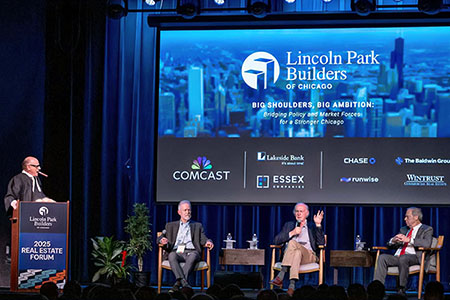Apr. 19, 2016 – Condominium associations and homeowner associations in Chicago and across the nation will be more closely watched by the federal government in the future under newly unveiled financial disclosure forms. Under the Uniform Mortgage Data Program, an initiative undertaken at the direction of the Federal Housing Finance Agency, Fannie Mae and Freddie Mac have developed two standardized Condominium Project Questionnaire forms. The forms are designed to provide greater consistency and financial clarity for lenders as they work to collect information to determine eligibility for mortgages purchased by Fannie and Freddie. Nationwide, the number of association-governed communities is estimated at more than 350,000 projects that house more than 70 million Americans.
Fannie Mae and Freddie Mac buy conventional mortgages from banks and mortgage companies, package them into investment securities, and sell them to investors. Assuming condominium associations, HOAs, and management companies comply with the forms, lenders will be provided with much more detailed information about the physical and financial condition of the developments. Project eligibility requirements include fiscal viability, full details on the residential units, amenities, common areas, and the ownership structure. Associations will also be required to provide lenders with details on commercial space, hotel or resort components, income from business operations, deed or resale restrictions, and mandatory fees charged to owners for amenities or services.
Fannie Mae and Freddie Mac created the new standardized forms based on lender and industry feedback collected over the years, as well as from a recent survey by the government-sponsored lending enterprises. Two types of forms now will provide lenders with a convenient way to collect information from the HOAs about the condominium project in a consistent and easy-to-understand format. Here are details on the two Condominium Project Questionnaire forms… Fannie Mae Form 1076 or Freddie Mac Form 476. This “full form” five-page questionnaire provides a list of eligibility queries to support a full approval process for new and established condominium projects. The form includes a section of questions for newly converted or rehabilitated condo projects. For rehabs, it asks if a structural and mechanical report was conducted by a licensed engineer, and if major mechanical components were replaced. The questionnaire also requests information on insurance details and financial controls on bank accounts and reserve funds. It asks if two members of the condo or HOA board of directors are required to sign any check written on the reserve account. The questionnaire also asks for disclosure of owners who are 60 days delinquent or more in common-expense assessment payments. The questionnaire asks: If a lender acquires a unit by foreclosure, or a deed-in-lieu of foreclosure, is the lender responsible for paying delinquent assessments? Fannie Mae Form 1077 or Freddie Mac Form 477. This “short form” four-page questionnaire provides a shorter list of questions to facilitate a limited or simplified review of condominium projects. This form omits the section of questions targeted to newly converted or rehabilitated condo projects. While lender use of these new condominium project questionnaire forms is optional at this time, Fannie Mae and Freddie Mac are strongly encouraging lenders to begin using and retaining them in the project review file. “As part of a lender’s underwriting review of the project, these forms will help streamline the evaluation of condominium projects and create greater consistency and efficiencies throughout the industry,” noted a spokesperson for the government-sponsored lending enterprises. According to the Federal Housing Finance Agency, the Uniform Mortgage Data Program will provide the following benefits to lenders, condo associations, HOAs and management firms…
|








 More info:
More info: 








